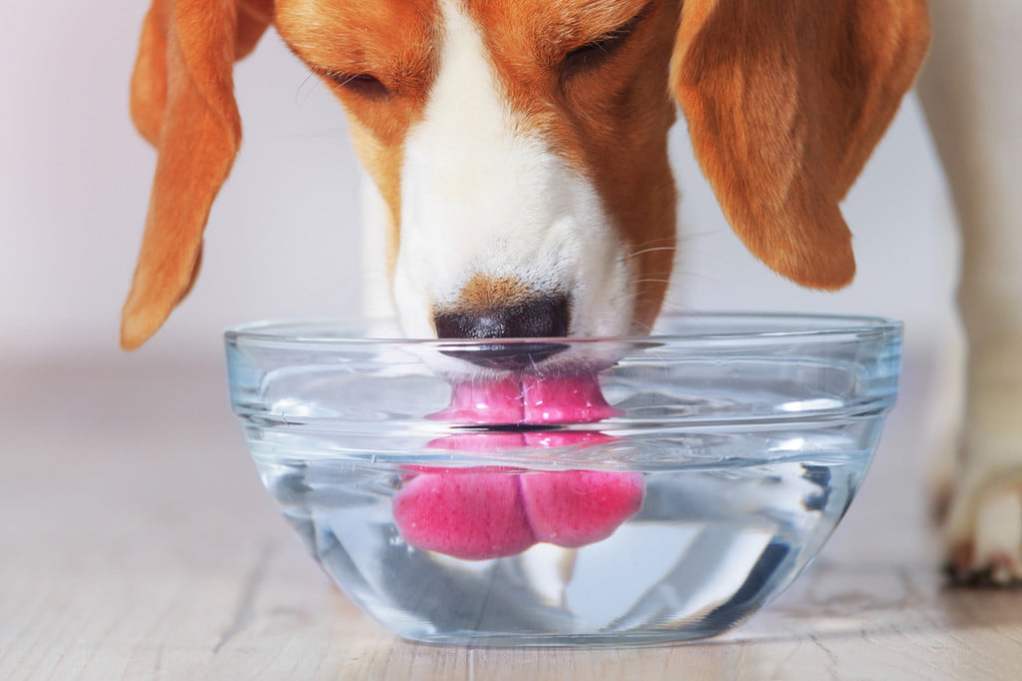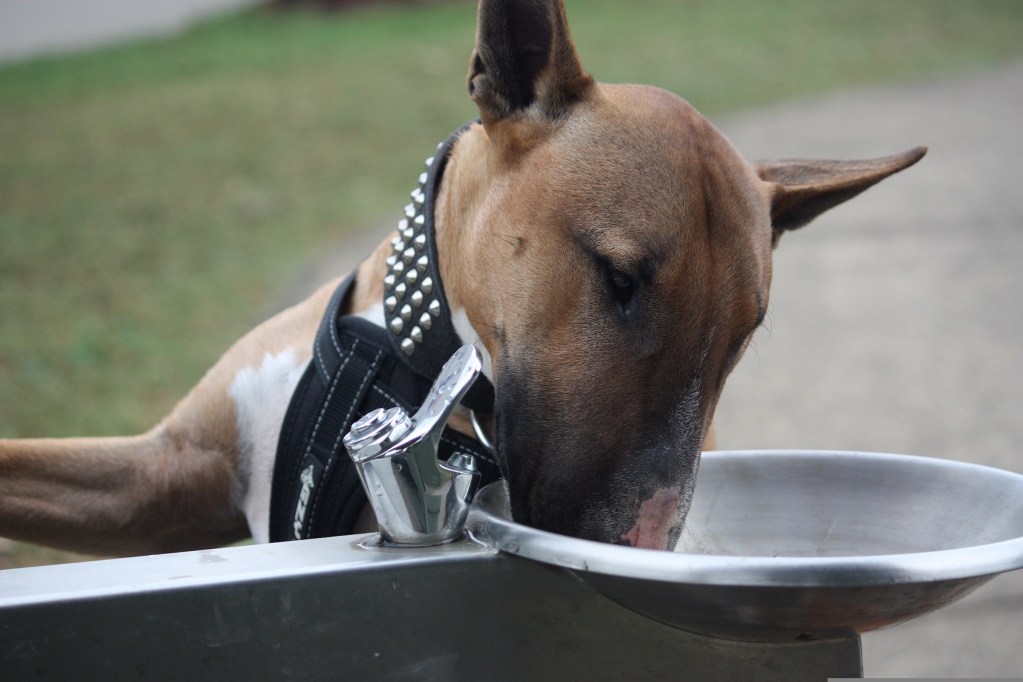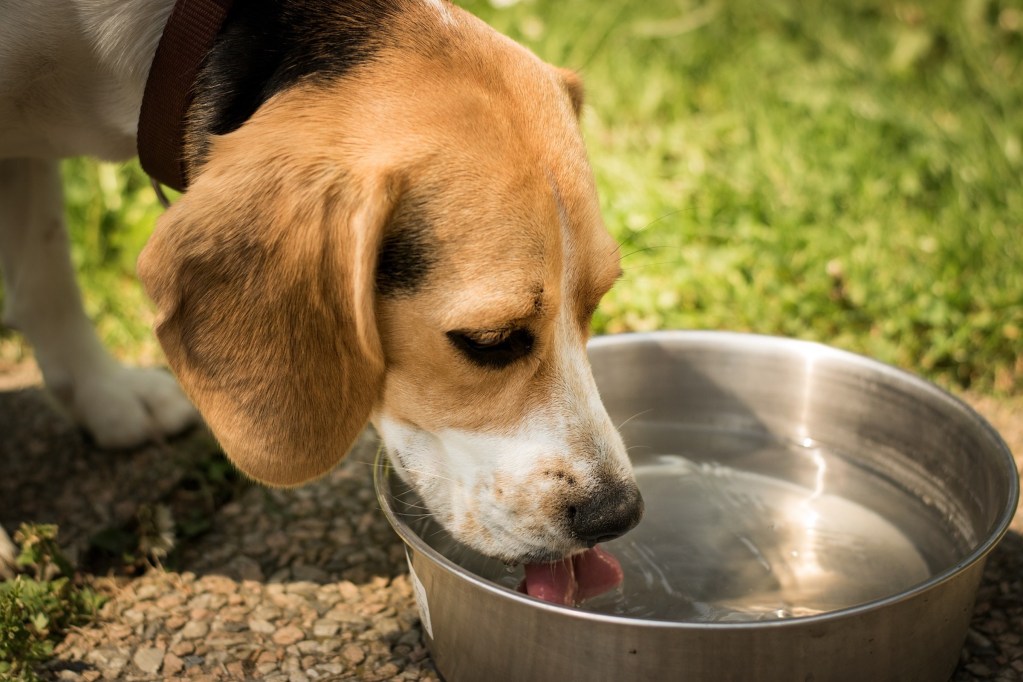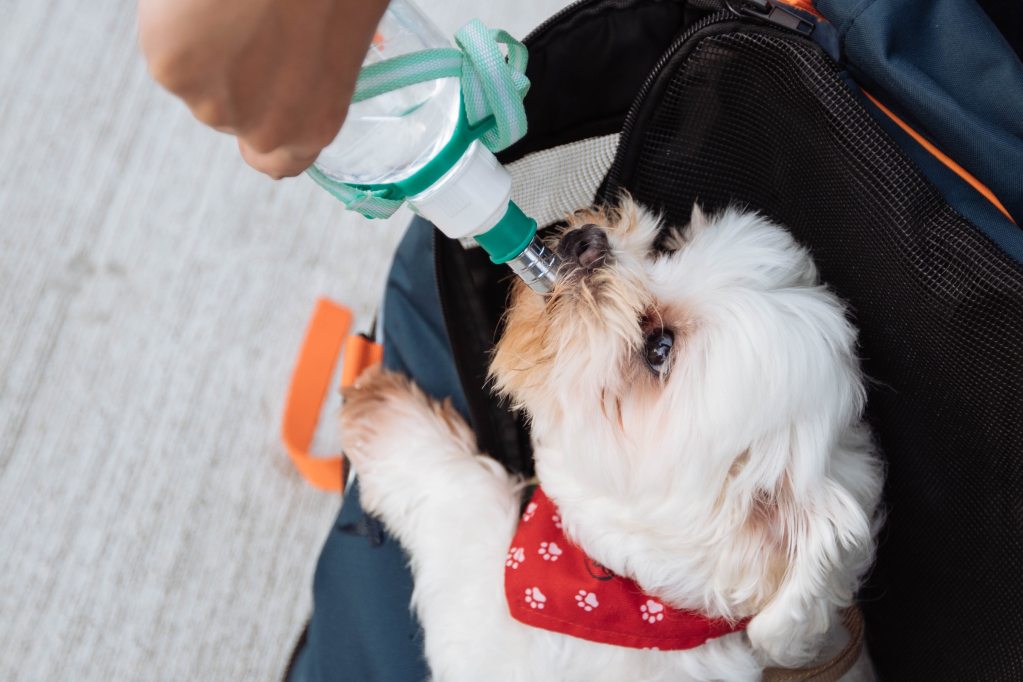You might think that if a dog is thirsty, they’ll simply drink water; but it’s not always so simple. There are many reasons why a pup might be over or under-hydrated — many of which they won’t understand themselves — so it’s important to have an idea of what to aim for. If you find yourself asking, “how much water should a dog drink each day?” then this one’s for you.
It should go without saying that your veterinarian will be your best resource for urgent and long-term situations. If your dog is showing signs of water intoxication (which we will discuss below) or if your dog won’t drink water entirely, it’s probably time to give them a call.

How much water should my dog drink every day to stay thoroughly hydrated?
You’ve heard about the daily fluid intake recommendations for people (which reminds us, we should get another glass), but it’s a bit harder to find and regulate those standards for dogs. Still, it’s important to know how much water your best bud should be drinking every day because it might be more than you realize.
The canine nutrition experts at Hill’s Pet offer a great technique for discovering your pup’s ideal water intake, though you’ll need to know their weight in order to try it. Fortunately, though, the “equation” itself is super easy. A dog should drink “1 ounce of fluids per pound of body weight,” so that a five-pound Chihuahua would only drink 5 ounces of water per day. A 110-pound Great Dane, on the other hand, should drink 110 ounces of water every day!
If that sounds like a lot of water, that’s because it is. These giant breeds are supposed to drink about as much as an adult human (via Cleveland Clinic)! Of course, this is only the average measurement, too. There will be some times and situations when a dog will definitely need more water than this equation indicates.

When will a dog need to drink more water?
As our friends at Purina remind us, water is the most important nutrient for a dog. In fact, “it’s actually even more vital for dogs than humans, in order to prevent them from overheating,” so you’ll want to make sure your buddy has plenty of water when the temperature gets warm. And, remember, your dog will get warm much faster than you! They cool off primarily by panting, too, so water loss can happen very quickly in the heat. Even puppies need a water schedule!
Of course, a dog who has just exercised will definitely need a drink to cool down–so don’t forget to pack a travel dog water bottle. Even just a few minutes of running can be a major workout!
There are medications that might make a pet more thirsty, too, so do keep that in mind. More often, though, it’s a medical condition that might make a dog more thirsty than normal. According to Purina, these include:
- urinary tract infection
- liver or kidney disease
- hormonal diseases, such as Addison’s and Cushing’s
- diabetes
- high calcium or sodium levels
- pyometria, an infected uterus

Can a dog drink too much water? You might be surprised
You might be surprised to learn that a dog can, in fact, drink too much water. According to Barry KuKes of the Halifax Humane Society, it can even be toxic! When there is too much water in a dog’s system, their body can be in a state of hyponatremia, where there is not enough sodium in the blood. In cases of water intoxication in dogs, notes KuKes, you may notice symptoms such as:
- loss of coordination
- lethargy
- nausea and/or vomiting
- bloating
- dilated pupils and/or glazed eyes
- pale color on the mucous membranes (your dog’s gums)
- excessive salivation
- difficulty breathing (in severe cases)
- seizures (in severe cases)
- coma or death (in severe cases)
In a lot of cases, says KuKes, overhydration can occur when a dog has been swimming or even just playing in the water (yes, even a garden hose or sprinkler). Sometimes, though, a pup can experience psychogenic polydipsia–the desire to drink too much water. As Calder Vets explains, you should never restrict your dog’s water intake even if you are suspicious of overhydration. Monitoring your pet as closely as possible, collecting a urine sample, and contacting your veterinarian will be your best course of action.

How to keep a dog hydrated, especially during exercise or heat waves
Besides understanding what a “normal” water intake for dogs might look like, it may help to be proactive in keeping your buddy hydrated. Having a portable water bowl wherever you go will be handy in a pinch (especially considering their small size), though you can also avoid exercising your pup during the hottest parts of the day entirely. This might be a good idea for everyone!
You can also try giving your dog wet food instead of kibble every now and then. Because of the higher moisture content in the can, your pup is likely to get a bit of hydration with their meal. Of course, you can also add water directly to some kibbles to make them slightly wetter.
Whatever techniques you try, make sure they have constant access to water–even if you need to buy a crate water dispenser. And be sure to be patient with your pup! Not all dogs find the perfect balance of hydration right away, and that’s completely OK.



